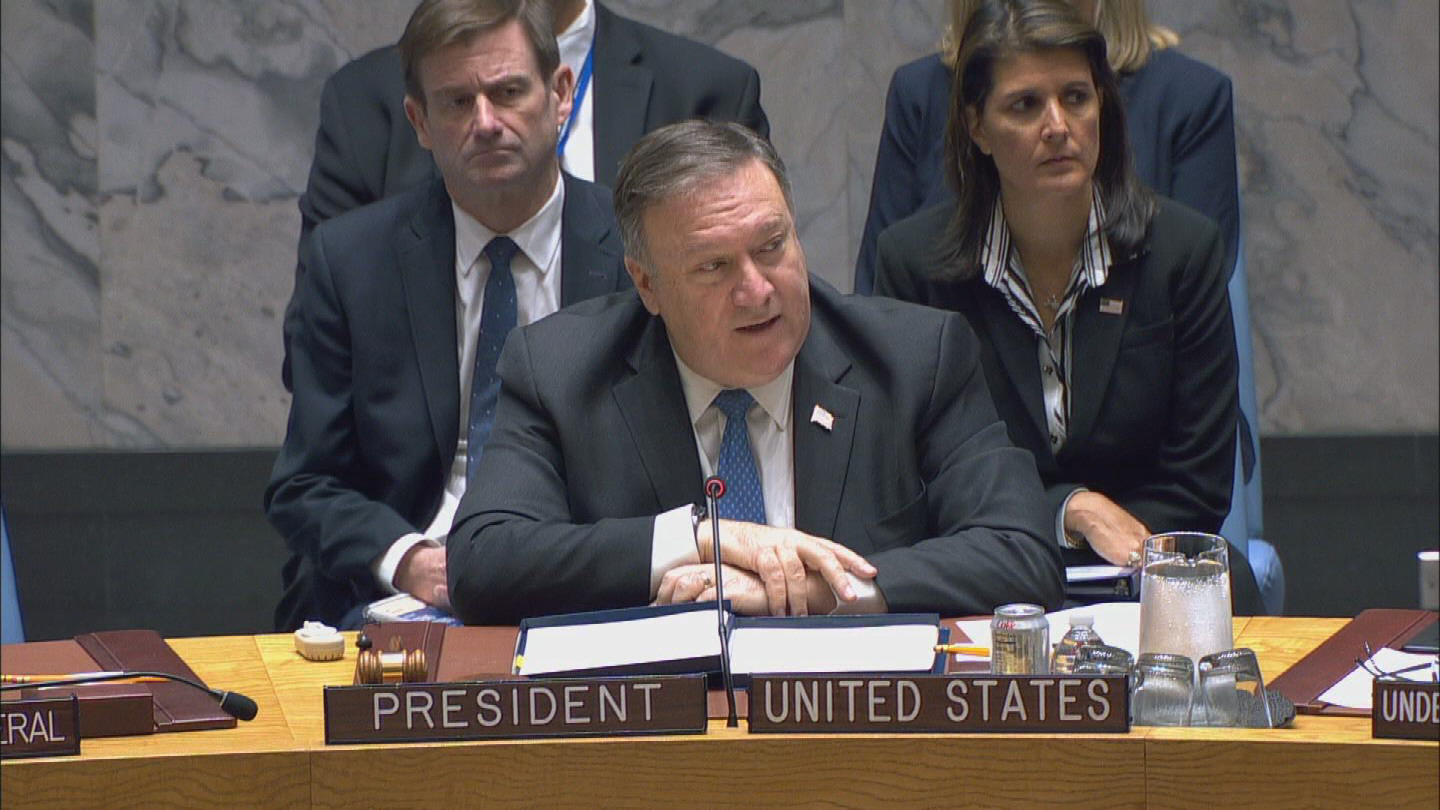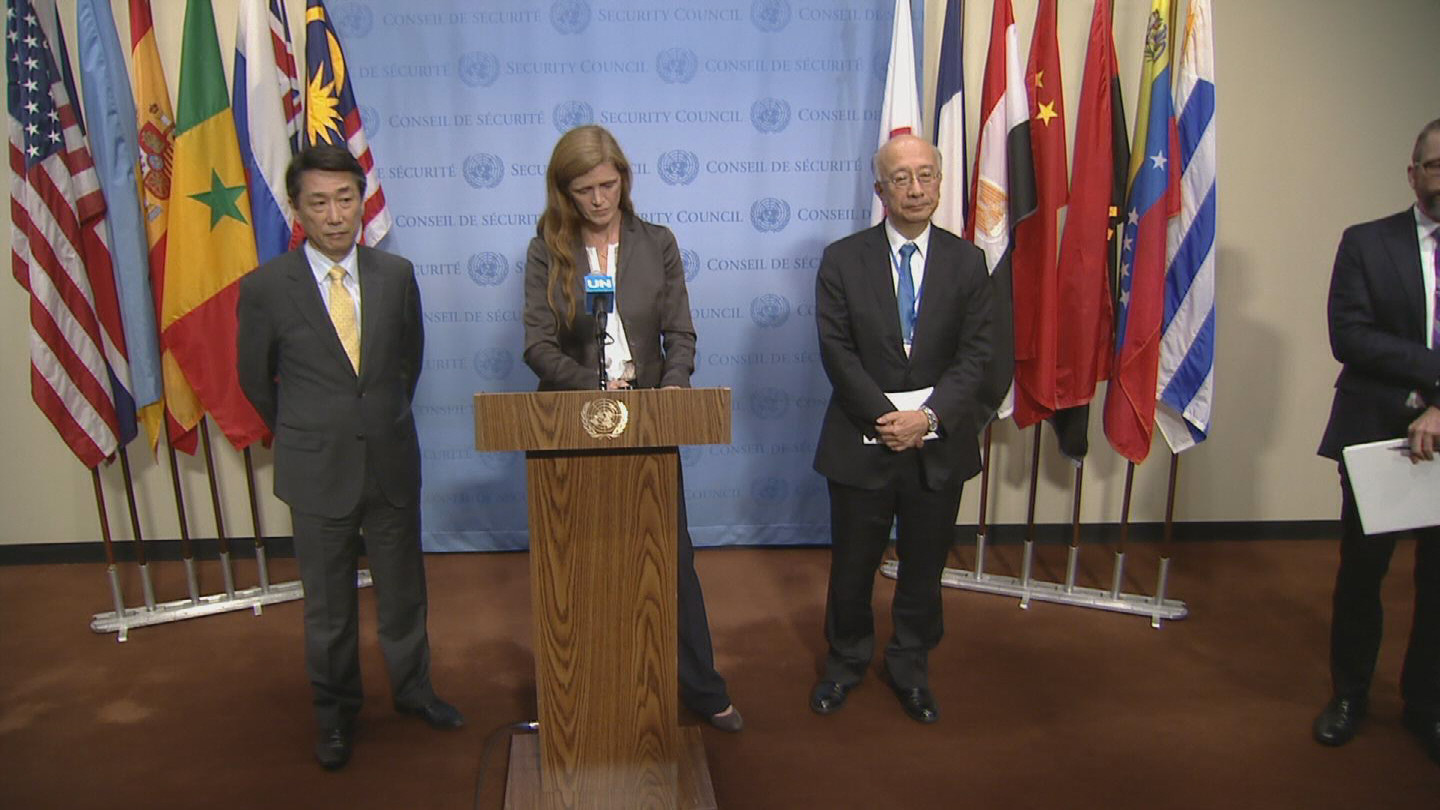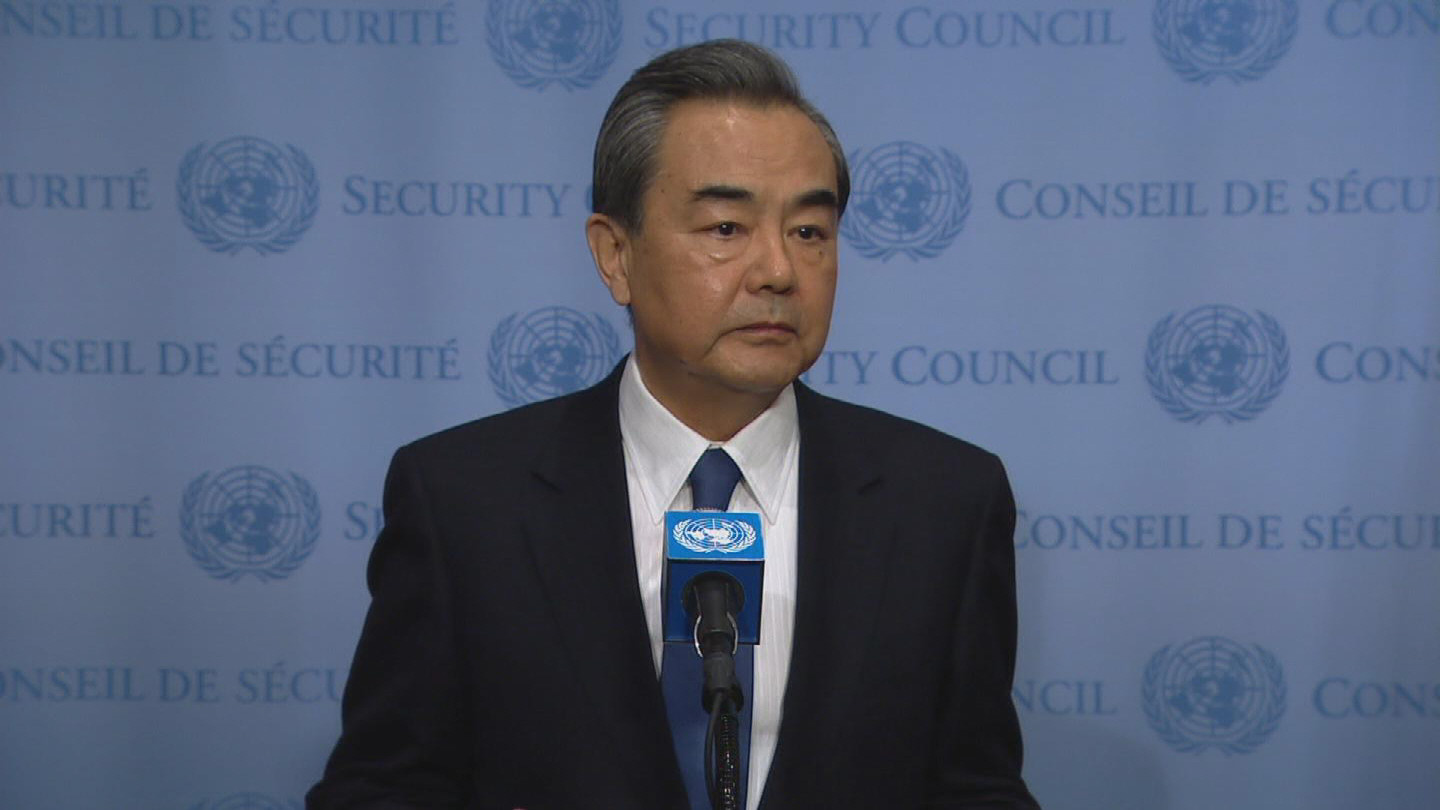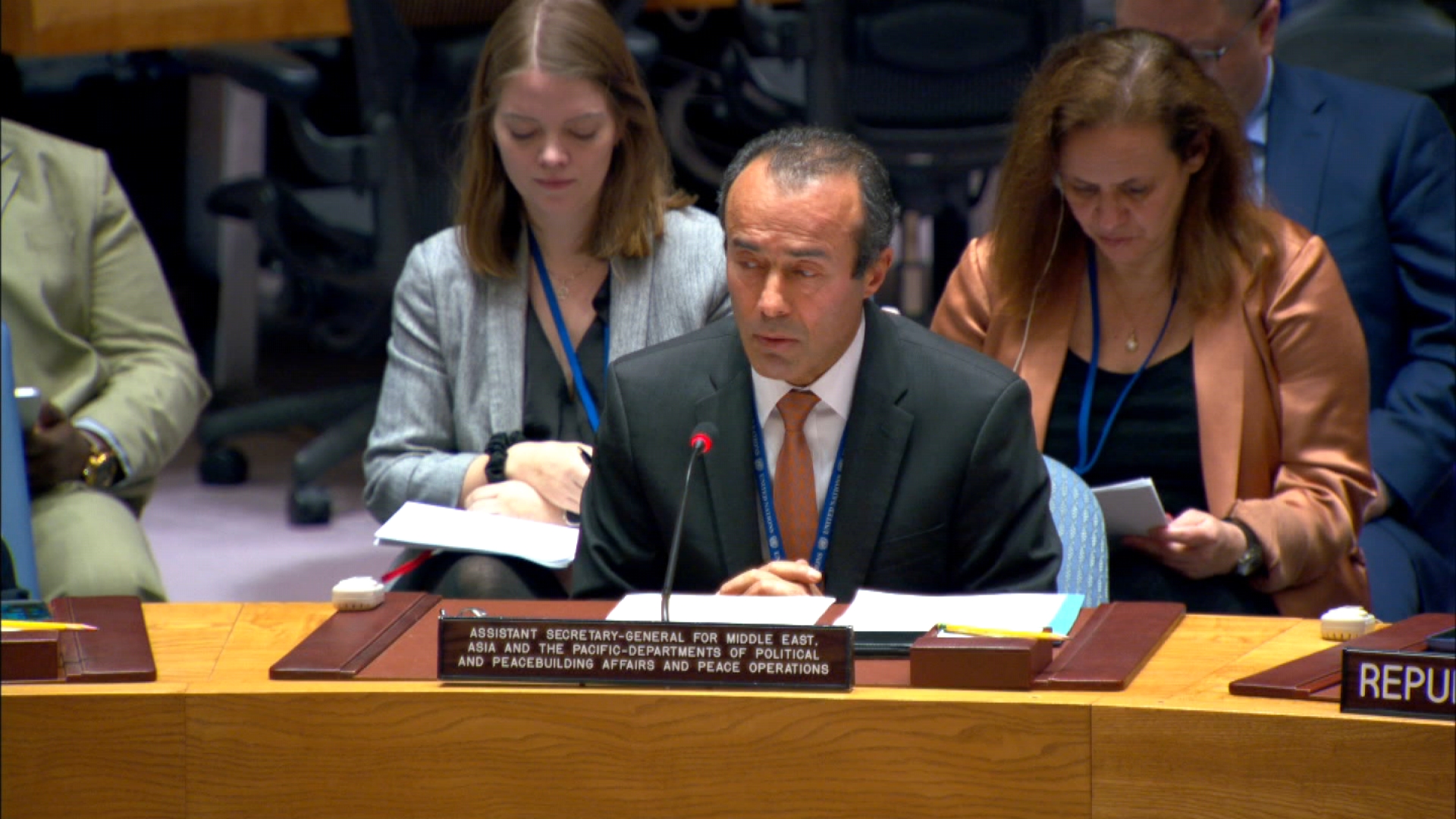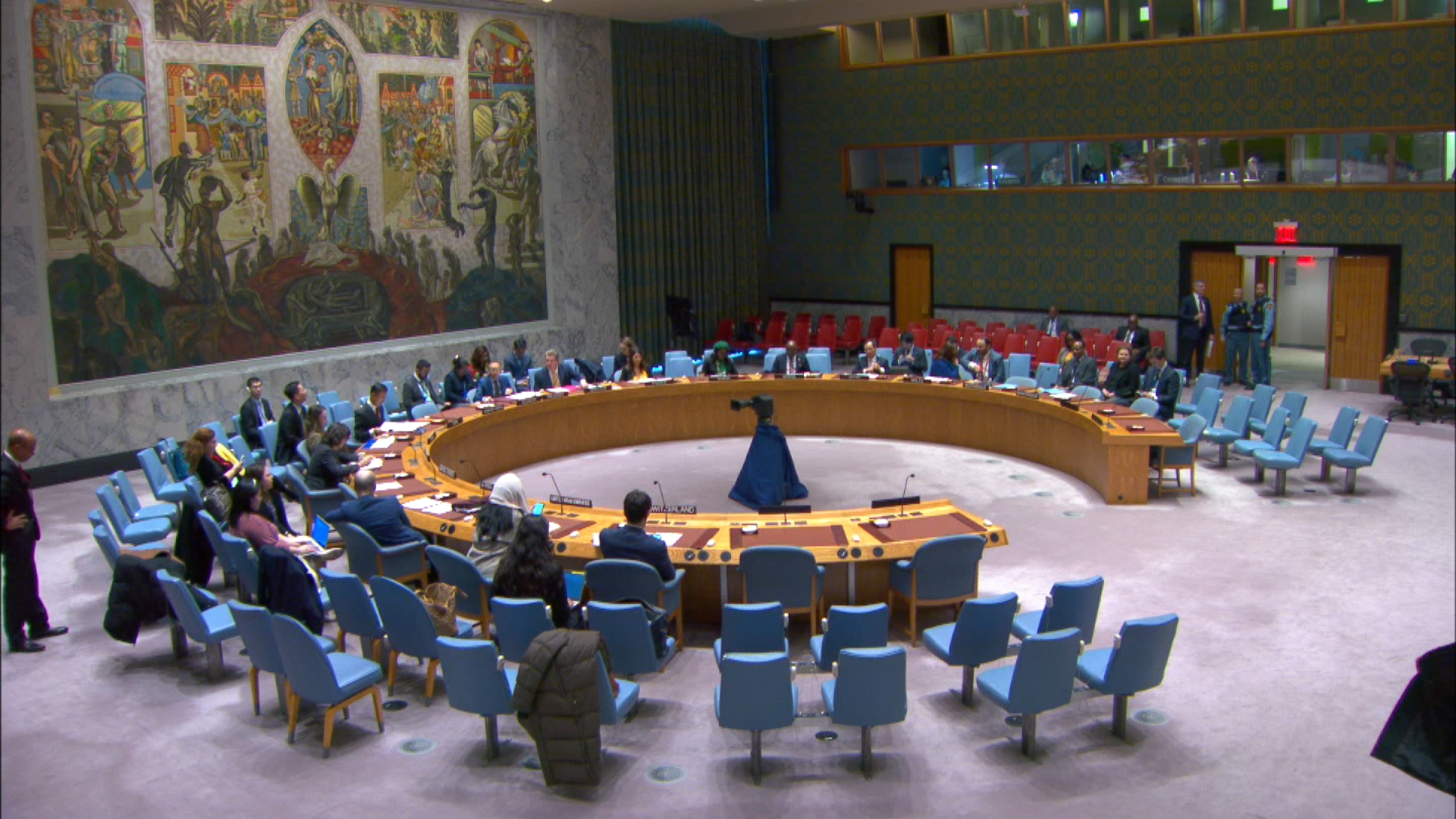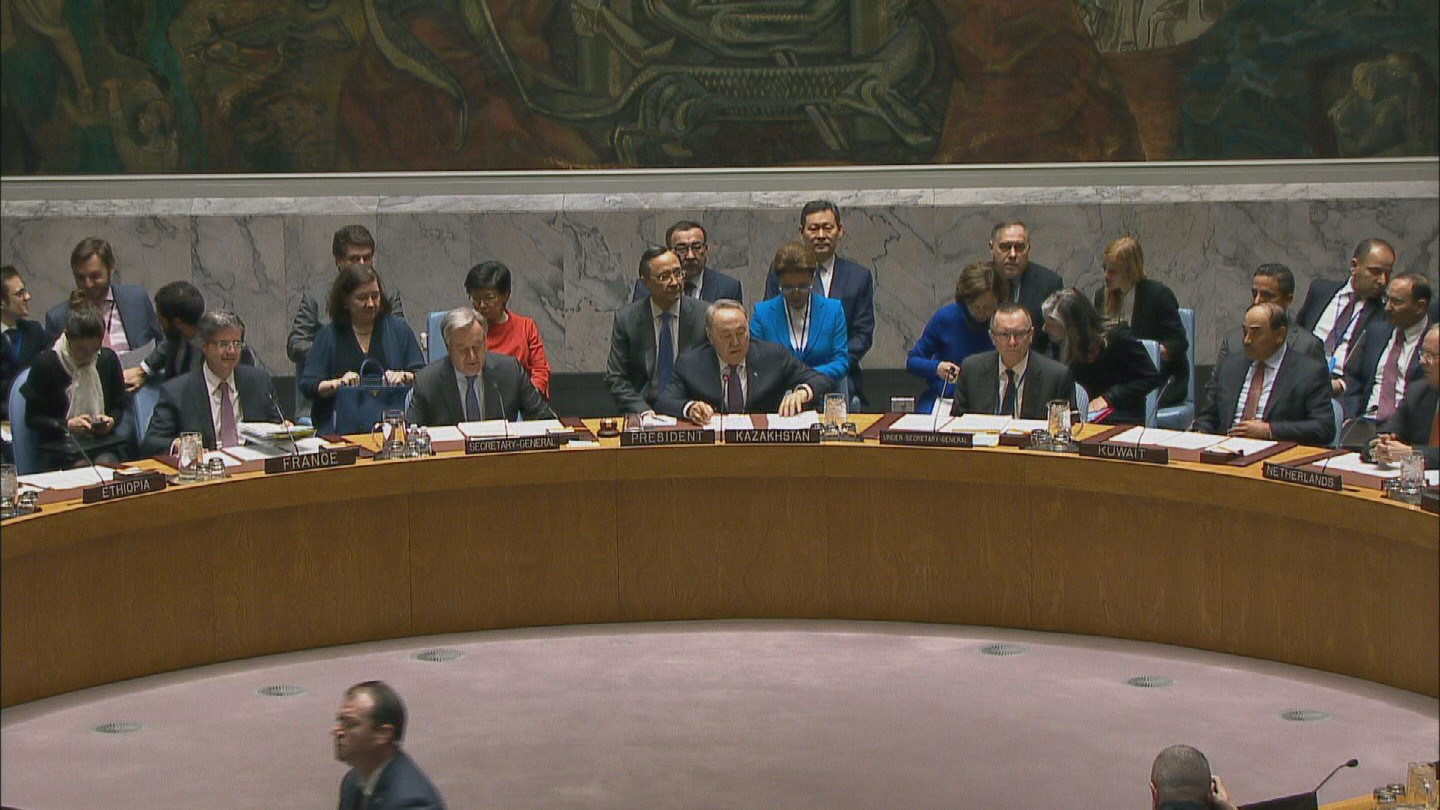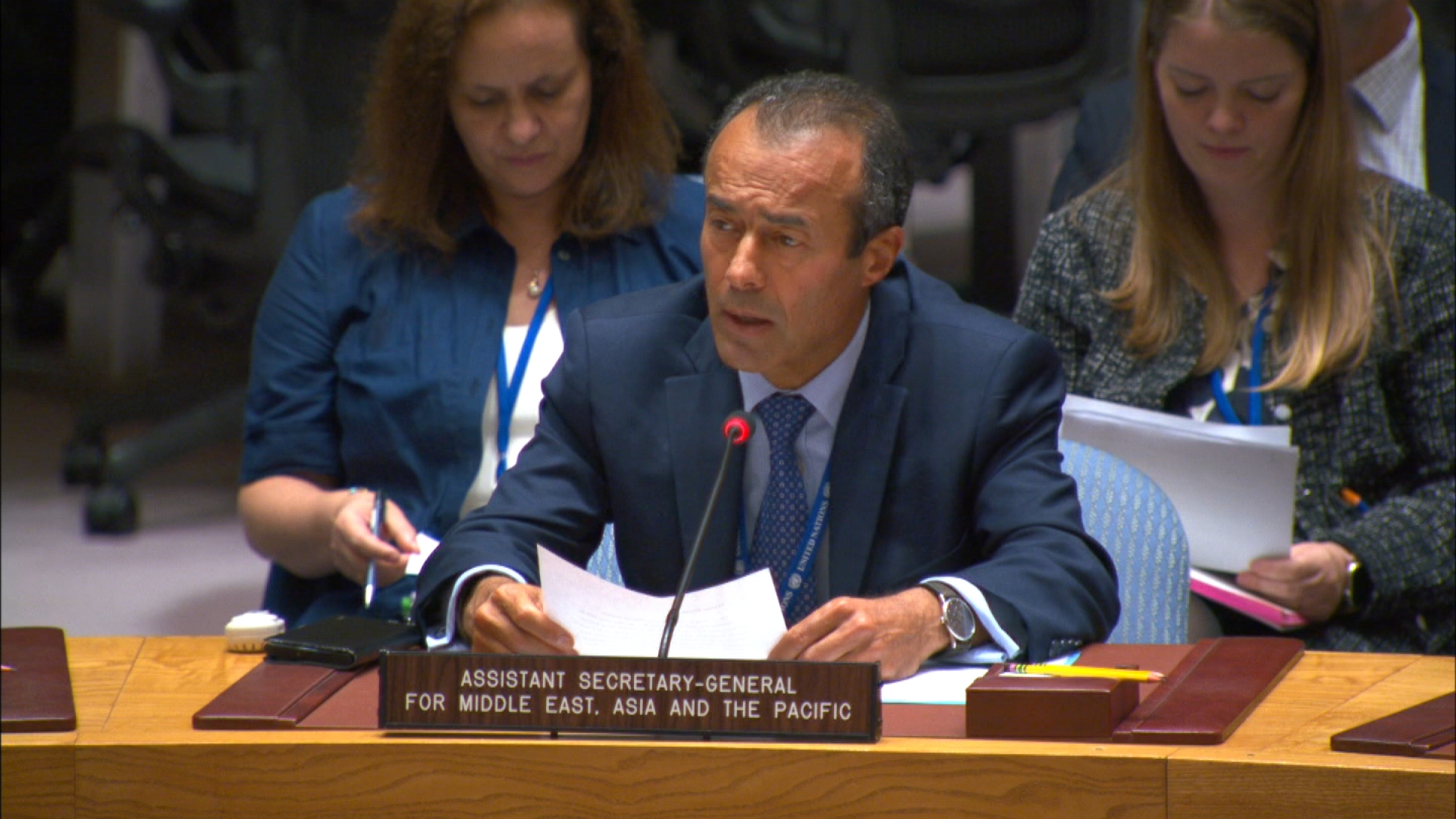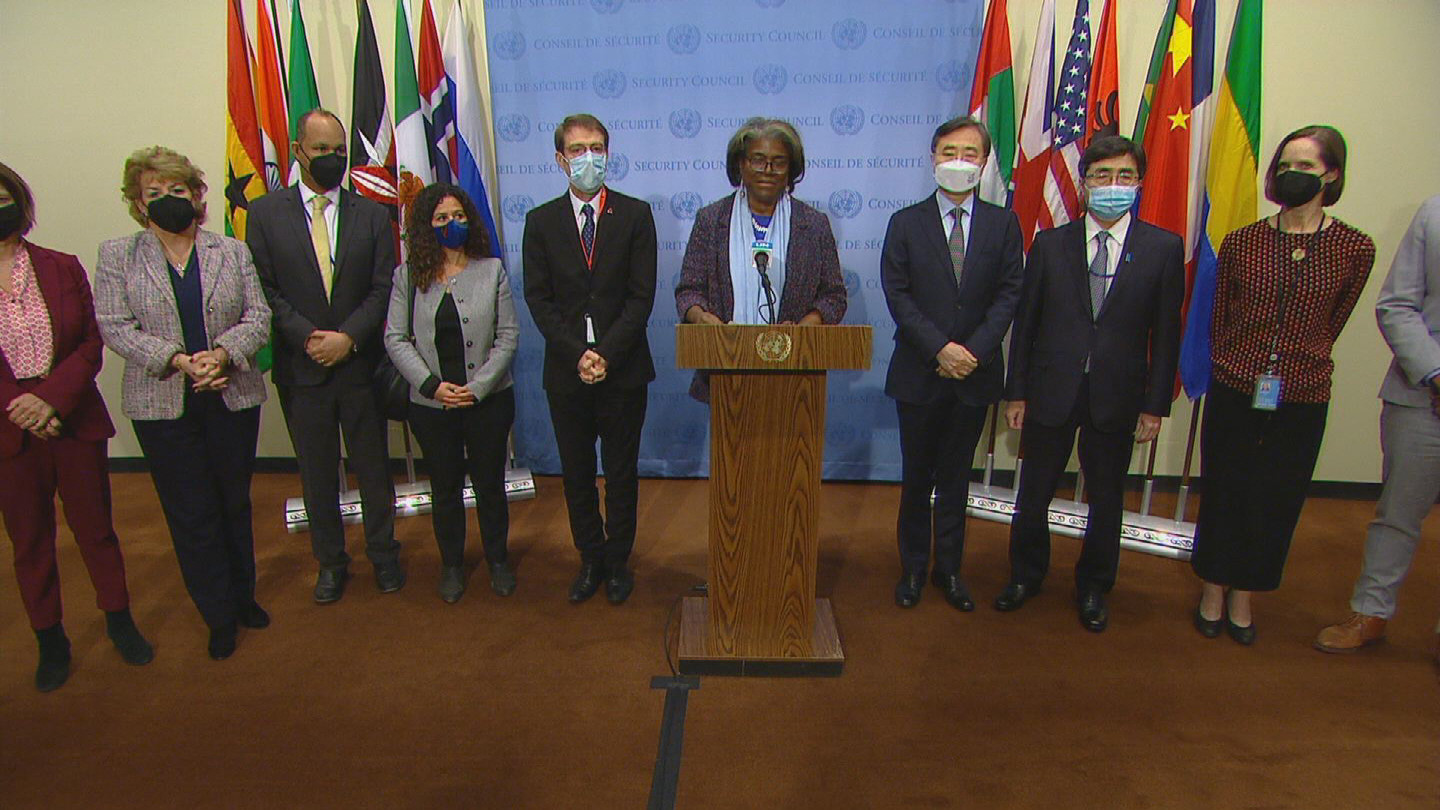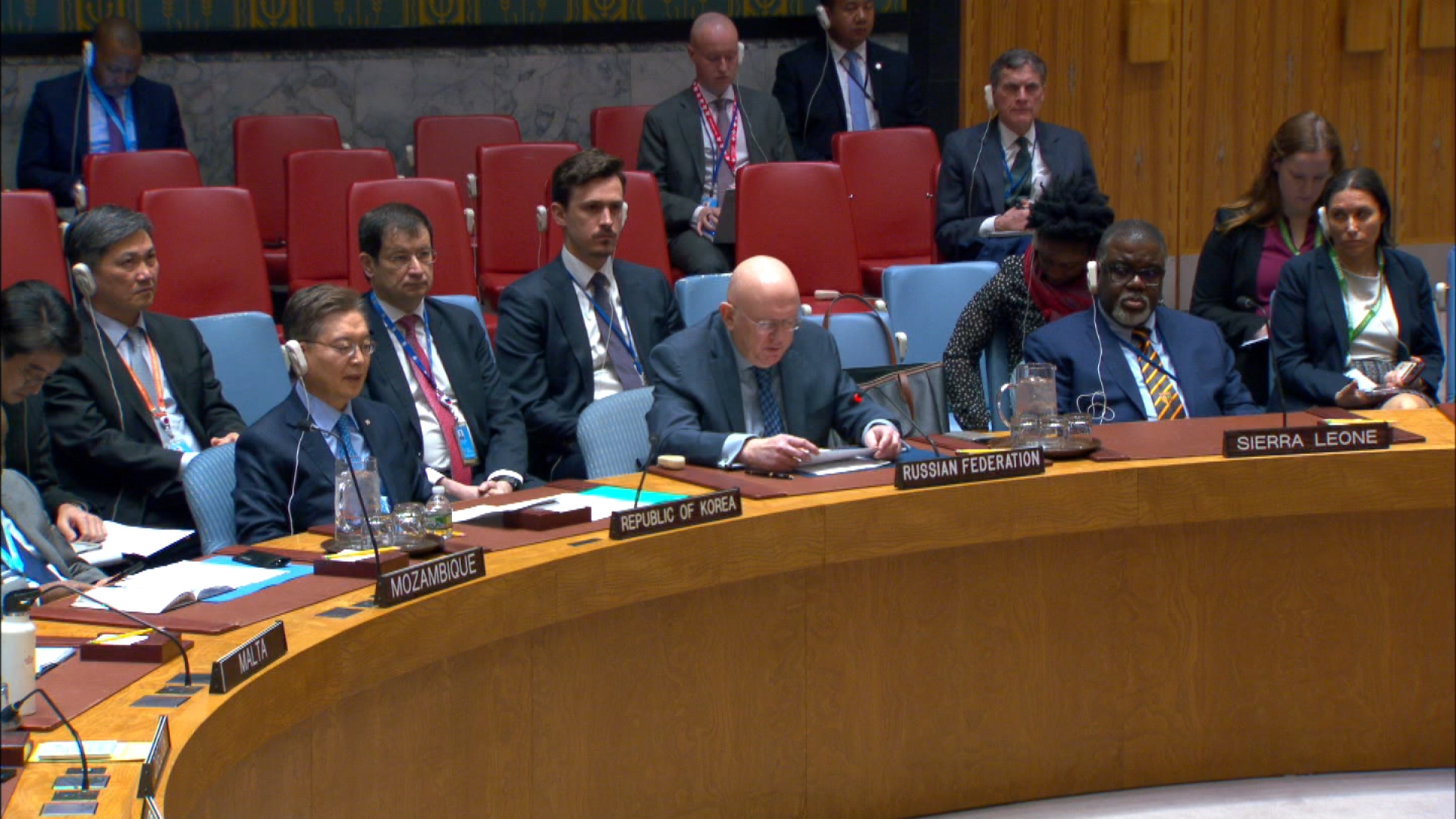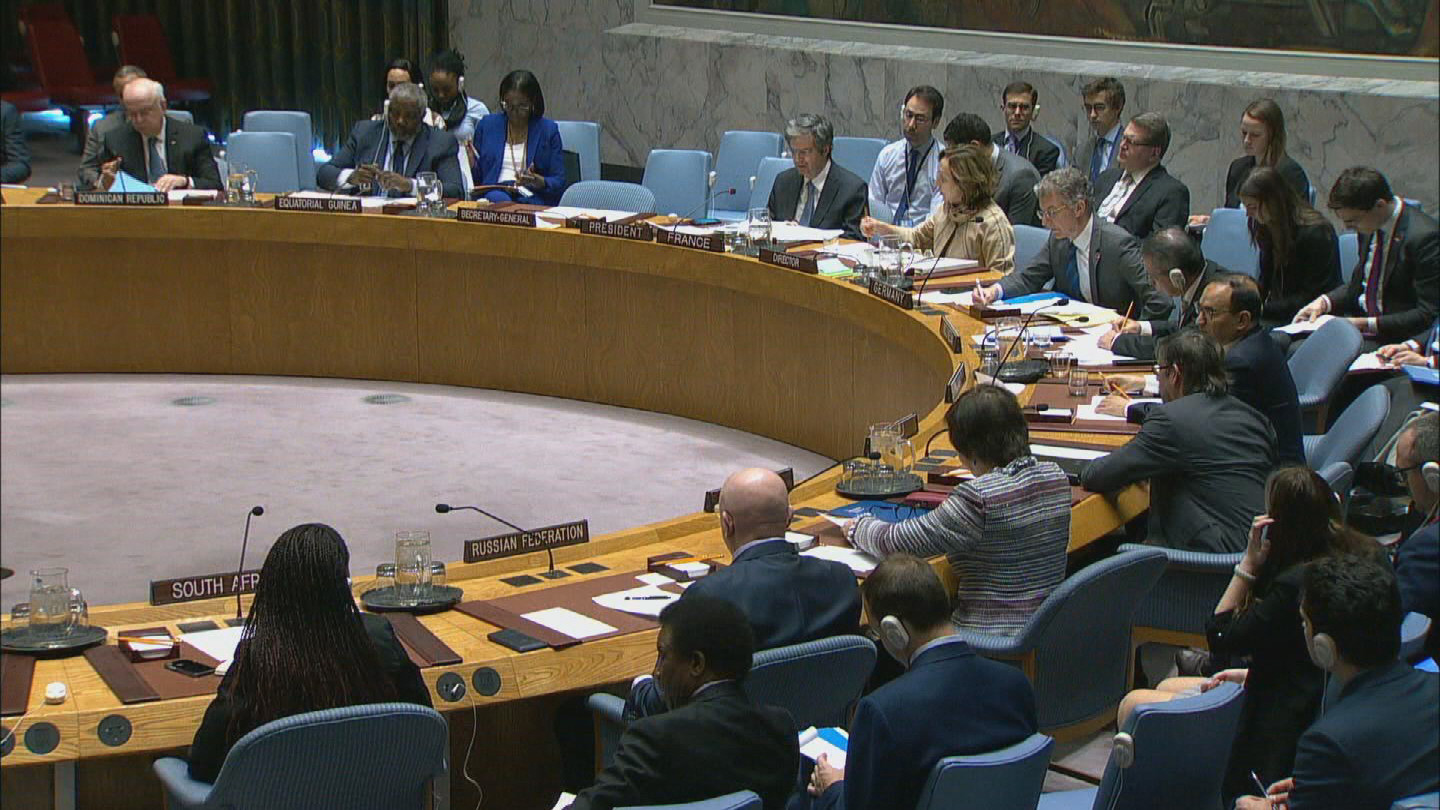UN / DPRK MINISTERIAL MEETING
Download
There is no media available to download.
Share
STORY: UN / DPRK MINISTERIAL MEETING
TRT: 03:41
SOURCE: UNIFEED
RESTRICTIONS: NONE
LANGUAGE: CHINESE / ENGLISH / NATS
DATELINE: 28 APRIL 2017, NEW YORK CITY
FILE - NEW YORK CITY
1. Wide shot, UNHQ exterior
28 APRIL 2017, NEW YORK CITY
2. Wide shot, Security Council
3. SOUNDBITE (English) António Guterres, Secretary-General, United Nations:
“We need to avoid miscalculation and misunderstanding. We need to act now to prevent conflict and achieve sustainable peace. This means the DPRK refraining from further testing, complying with the relevant Security Council resolutions, and exploring the resumption of dialogue. This means reopening and strengthening communication channels, particularly military to military, to lower the risk of miscalculation or misunderstanding.”
4. Med shot, Security Council
5. SOUNDBITE (English) Rex Tillerson, Secretary of State, United States:
“For too long, the international community has been reactive in addressing North Korea. Those days must come to an end. Failing to act now on the most pressing security issue in the world may bring catastrophic consequences.”
6. Med shot, Chinese Foreign Minister
7. SOUNDBITE (English) Rex Tillerson, Secretary of State, United States:
“All options for responding to future provocation must remain on the table. Diplomatic and financial levers of power will be backed up by a willingness to counteract North Korean aggression with military action if necessary. We much prefer a negotiated solution to this problem. But we are committed to defending ourselves and our allies against North Korean aggression.”
8. Wide shot, Security Council
9. SOUNDBITE (English) Rex Tillerson, Secretary of State, United States:
“I realize some nations for which a relationship with North Korea has been in some ways a net positive may be disinclined to implement the measures of pressure on North Korea. But the catastrophic effects of a North Korean nuclear strike outweigh any economic benefits. We must be willing to face the hard truths and make hard choices right now to prevent disastrous outcomes in the future. Business as usual is not an option.”
10. Med shot, Security Council
11. SOUNDBITE (Chinese) Wang Yi, Minister of Foreign Affairs, China:
“We must stay committed to the path of dialogue and negotiation. The use of force does not solve differences and will only lead to bigger disasters. As the only way out, dialogue and negotiations also represent the sensible choice for all parties.”
12. Wide shot, people in attendance of meeting
13. SOUNDBITE (Chinese) Wang Yi, Minister of Foreign Affairs, China:
“China is not the focal point of the problem on the Peninsula and the key of solving the problems on the Peninsula does not lie in the hands of the Chinese side. That being said as a close neighbour to the Peninsula and with the responsible attitude for peace and stability on the Peninsula and in the region China has over the years made unremitting efforts and played a unique role in promoting a negotiated solution of the issue.”
14. Wide shot, Security Council
15. SOUNDBITE (Chinese) Wang Yi, Minister of Foreign Affairs, China:
“Of course we also know that some countries may still have doubts of sorts. The point I want to make is that the most urgent task now is to stop the DPRK’s nuclear and missile development. To achieve this, it is necessary to put aside the debate over who should take the first step and stop arguing who is right and who is wrong.”
16. Wide shot, Security Council
17. SOUNDBITE (English) Yun Byung-se, Minister of Foreign Affairs, Republic of Korea:
“If we do not respond to North Korea’s repeated provocations in a resolute manner now, we will only further feed the appetite of the trigger-happy regime in in Pyongyang. In this regard, should North Korea conduct a sixth nuclear test or launch an ICBM (intercontinental ballistic missile), it would be a game changer for all of us.”
18. Zoom out, Security Council
United States Secretary of State Rex Tillerson said the international community’s “reactive” approaching in addressing the North Korean nuclear issue “must come to an end” adding that “failing to act now on the most pressing security issue in the world may bring catastrophic consequences.”
Tillerson was presiding today (28 Apr) over a ministerial meeting of the Security Council on the Democratic People’s Republic of Korea (DPRK). He said the diplomatic effort to resolve the country’s nuclear issue had failed reiterating that the United States’ policy of strategic patience was over. He stressed that “all options for responding to future provocation must remain on the table” including “military action if necessary.” He noted that the United States (US) would “much prefer a negotiated solution to this problem” but was committed to defending itself and its allies “against North Korean aggression.”
The Secretary of State call for a new approach which would increase diplomatic and economic pressure on the DPRK calling on countries to fully enforce adopted Security Council resolutions and suspend or downgrade diplomatic relations with the country while isolating the country financially. He called on the international community to suspend the flow of North Korean guest workers and to impose bans on North Korean imports, especially coal. Tillerson noted that China accounted for 90 percent of North Korean trade giving it unique economic leverage over Pyongyang. He reaffirmed that the “catastrophic effects of a North Korean nuclear strike outweigh any economic benefits” adding that business as usual was “not an option.”
UN Secretary-General António Guterres called the situation on the Korean Peninsula one of the longest-standing and most serious issues before the United Nations. He strongly condemned the DPRK’s repeated violations of relevant Security Council resolutions while expressing alarm at the risk of a military escalation in the region, including due to a “miscalculation or misunderstanding.” Guterres stressed that the international community need to “act now to prevent conflict and achieve sustainable peace.” He called on the DPRK to refrain from further testing and for “reopening and strengthening communication channels, particularly military to military, to lower the risk of miscalculation or misunderstanding.”
Chinese Foreign Minister Wang Yi said “the key of solving the problems” on the Korean Peninsula “does not lie in the hands of the Chinese side.” He said his country proposed a dual-track approach by which synced and reciprocal progress would be made on the denuclearization of the Peninsula and the establishment of a peace mechanism. He stressed that dialogue and negotiation represented a “sensible choice for all parties” adding that the use of force does not solve differences and “will only lead to bigger disasters.” Wang noted that "some countries may still have doubts of sorts” but reiterated that the “most urgent task now is to stop the DPRK’s nuclear and missile development.” He said it was “necessary to put aside the debate over who should take the first step and stop arguing who is right and who is wrong.”
South Korean Foreign Minister Yun Byung-se said North Korea’s weapons of mass destruction capabilities coupled with its stated intent to use them brings the world ever so closer to the tipping point adding that the world was facing the greatest nuclear emergency since the Cuban missile crisis. Yun said the international community was racing against time and should no longer allow North Korea to dictate the agenda and timeline. He said the goal was to bring the DPRK back to the negotiations table for genuine denuclearization and the country was currently not interested in those negotiations; he said the DPRK’s game plan was to be recognized as a nuclear weapons state and negotiate nuclear disarmament as such. The South Korean Foreign Minister said if the international community did not respond to “North Korea’s repeated provocations in a resolute manner now, we will only further feed the appetite of the trigger-happy regime in Pyongyang.” He stressed that a new nuclear test or intercontinental ballistic missile launch in the DPRK would be “a game changer for all of us.”
